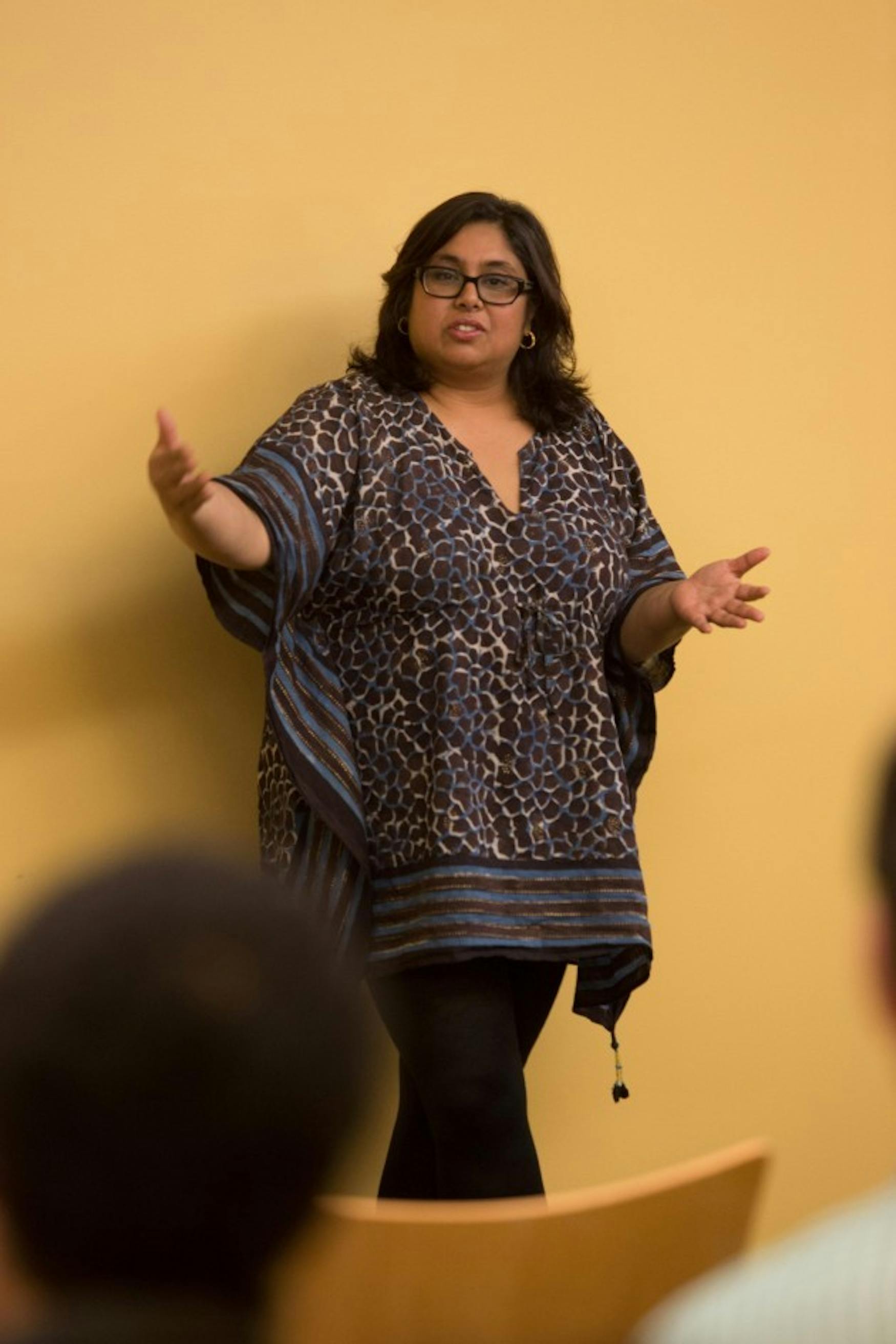D'Souza explores cultural identity in talk
On Thursday, Aruna D'Souza, an art historian, writer and critic, delivered this fall's Soli Sorabjee Lecture in South Asian Studies. D'Souza has taught art history at schools such as the University of California, Berkley and the State University of New York Binghamton and is currently a visiting professor at the Vermont College of Fine Arts MFA program in the visual arts. In her lecture, entitled Ingesting Culture: Cooking, Colonialism, and the Question of Indian-ness, D'Souza spoke on the topic of food as a means of cultural production. The lecture was well attended, and the audience enjoyed her fascinating account of her own complicated past full of imperialism, colonization, and racism.
D'Souza is a Canadian woman whose parents immigrated from India to Canada, where she and her sister were born. She described her and her family's personal experiences from when their area of origin, Mangalore, was originally colonized by the Portuguese, to their experiences returning to India. D'Souza combined personal anecdotes and historical sources to create an educational yet intimate lecture. She is interested in food as trauma, violence and struggle-what she describes as "anti-eat, pray, love".
Growing up in Canada, D'Souza and her family were minorities in a predominately white Alberta town. Her parents had met in medical school in India, moved to England, and then finally, to Canada. They had repeated their medical residencies four times in order to prove that they were, in fact, capable physicians and not barbaric cannibals, as a racist drawing left at the hospital suggested.
Soon, however, Canada had become part of their multicultural identity, as D'Souza's father developed a love for country music and his two daughters grew up as Canadians. However, food remained an important part of their culture, and D'Souza grew up enjoying the spicy flavors of Indian cuisine. Later, she comically described her father serving his daughters' Caucasian boyfriends delicious, "hallucinatingly hot" Indian food. Audience members giggled at D'Souza's description of the pink-faced men sweating as they tried to consume the food, and thus, prove their manliness.
D'Souza's ancestors were originally from Mangalore, where Portuguese missionaries converted them into Catholicism and destroyed much of their Hindu culture. The surname had been given to her family by the Portuguese missionaries. They mandated that salt be served on rice, that they be baptized into Christianity and they even required the Hindus to eat beef and pork, literally forcing it down their throats. Indian food, however, was not lost, but came to influence many other cultures, such as English and Portuguese cuisines.
D'Souza shifted from personal anecdote to the history of India and its culture. As Indian culture influenced the food of its imperialists, Western culture altered the Indian way of living. D'Souza focused on Chandigarh, which was supposed to put India on the world stage as a modern city, and was designed by Western architects The city included 13 groups of housing, which would provide basic amenities to everyone, a blow to class prejudice. Some criticize this city as Western architecture, and therefore, lifestyle, on an Indian landscape. However, D'Souza does not view the situation as merely Western imperialism but a combination of cultures that leave the past behind and create a hodgepodge of different lifestyles.
D'Souza used the metaphor of soup to symbolize something that had been combined and now could not be separated, as she cannot separate the colonial influences from her identity. Although some in Mangalore are reclaiming their original name in protest to their colonial past, the influence of Western imperialism is still visible in their actions, such as their ingestion of pork. D'Souza is not condoning imperialism. She is merely suggesting that identity is fluid and can have many influences and aspects. "I am a pork eater, among so many other things. You can't unstir a pot."




Please note All comments are eligible for publication in The Justice.